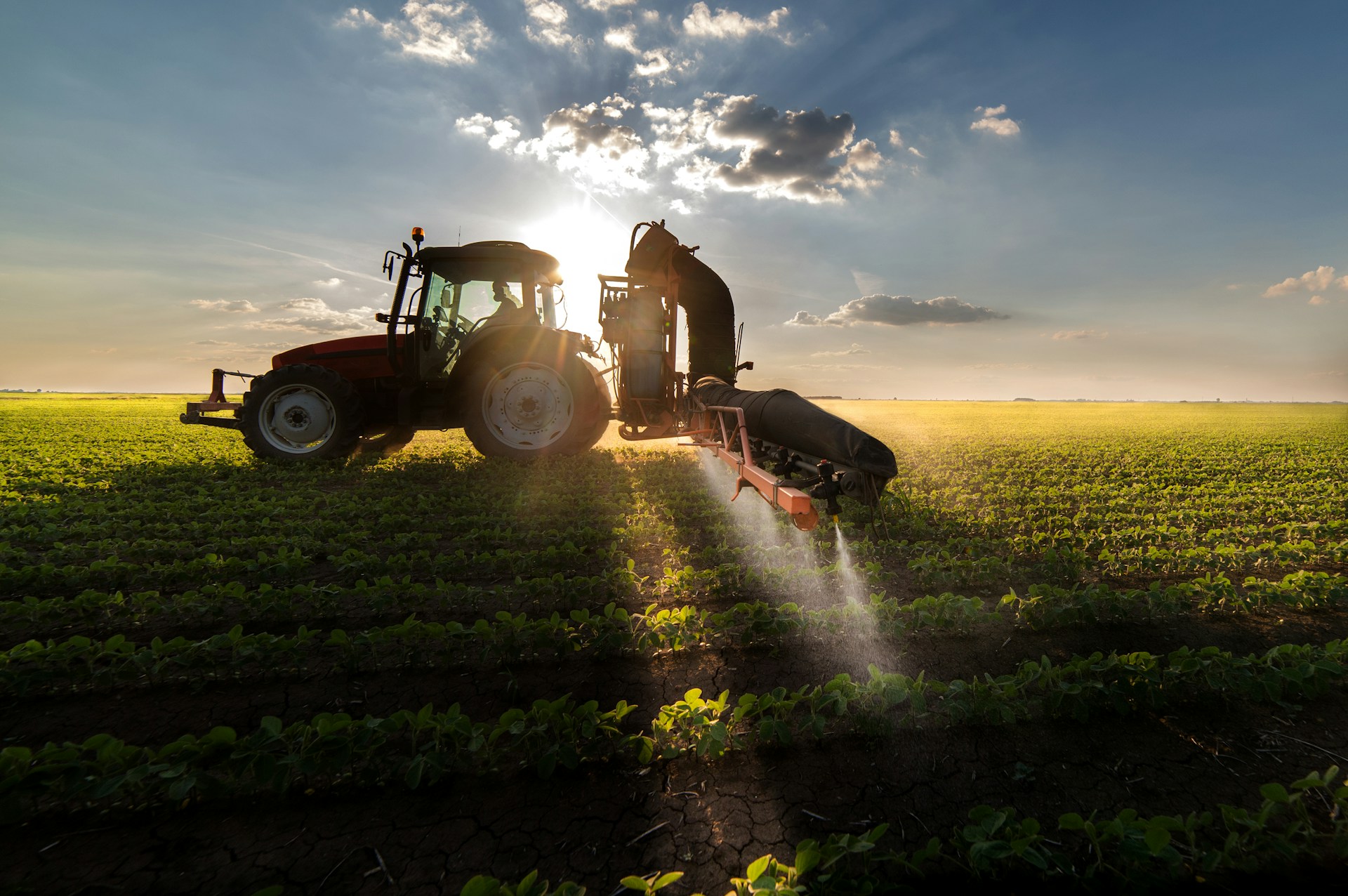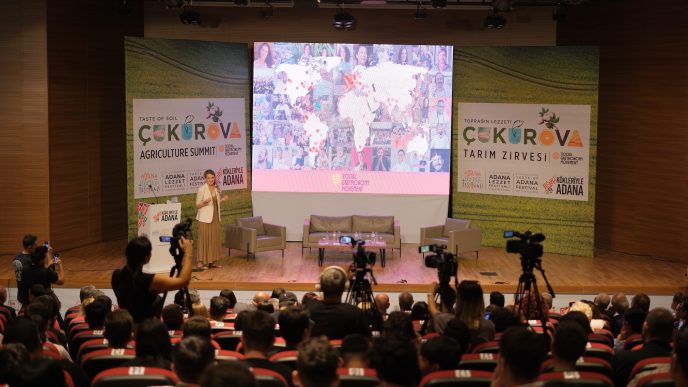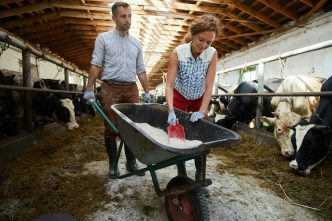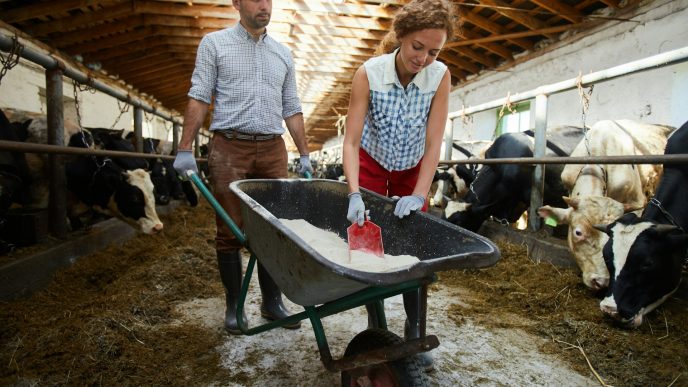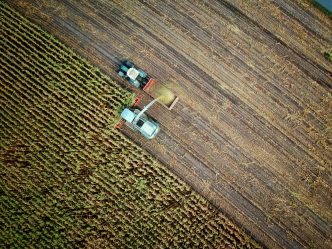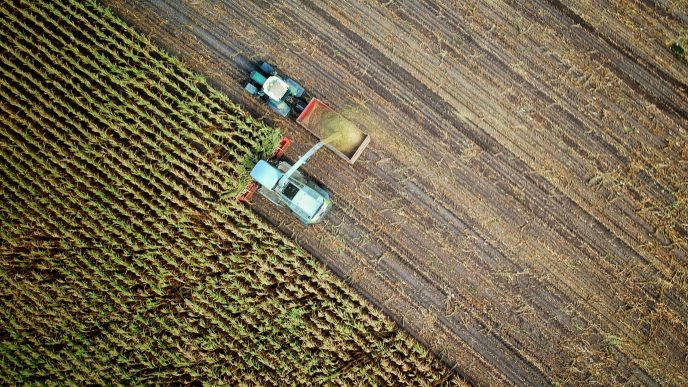While the EU institutions have entered the summer break period, with the Parliament on recess and the Commission operating on a skeleton staff in August, Brussels’s policymakers are in for a decidedly less relaxing return to business in the autumn. This is particularly true in the agri-food space, where a series of thorny issues are surfacing which President Ursula von der Leyen will need to deftly address in the EU executive’s anticipated ‘Vision for Agriculture and Food’ that she has promised to unveil in the first 100 days of the new mandate.
Looking ahead, the Commission will need to navigate this decisive period carefully, working closely with MEPs and farming groups to get this agri-food vision right and ensure the ghosts of the past mandate fail to undermine a promising future for European agriculture.
Farmers’ funding in the firing line
In the last week of July, two major agricultural policy red flags emerged which must be avoided at all costs if the EU genuinely wishes to improve its support to farmers. Outgoing Commissioner for Agriculture Janusz Wojciechowski has sharply criticised the idea to link the entire EU budget – including the Common Agricultural Policy (CAP), which represents roughly one-third of the budget – to political conditions and reforms.
Concerningly, this proposal, based on the approach to the disbursement of the bloc’s post-pandemic recovery fund, is gaining ground in Brussels, with EU Budget Commissioner Johannes Hahn among the growing group of influential figures floating the idea. Dismissing politically-based CAP payments as “unacceptable,” Wojiechowski has rightly pointed out the absurd potential situations in which “farmers in Poland (would) not receive money because (of) the problem with the (…) judiciary” or Italian producers would similarly lose out due to Brussels’s concerns over the the country’s public debt problem.
Wojciechowski has equally condemned the Commission’s recent proposal to slash EU funds for the promotion of the bloc’s agricultural products, an activity crucial in boosting farmers’ exports and maintaining a “very important” trade surplus for the industry. MEPs have joined in strongly critising the EU executive’s proposed €440 million reduction of the 2025-2027 CAP budget in late July – a move which would primarily impact funding for agri-food promotion and export missions for EU heritage products. As Italian MEP Herbert Dorfmann rightly noted, with European farmers desperately in need of “new ways of creating value for products, these cuts in promotions are counterproductive.”
Nutrition label adding insult to injury
Unfortunately, this blow to promotion funding is not the only Commission proposal threatening the viability of Europe’s protected designation of origin (PDO) products, which French MEP Céline Imart referred to as “the pride of our regions” in a recent Parliamentary debate urging the EU executive to “shore up” the budget.
Part of the Farm to Fork Strategy’s healthy food pillar, the Commission’s harmonised nutrition label continues to pose a menace to the champions of EU gastronomic culture given Brussels’s failure to definitively rule out France’s Nutri-Score system as a candidate. As MEP Dorfmann has long argued, Nutri-Score brands Europe’s national heritage foods – such as PDO hams and cheeses – with “misleading” and punitive grades due to its failure to factor in realistic portion sizes or the vital micronutrients of other European staples like olive oil.
This flawed labeling system has already faced significant opposition from a growing contingent of EU countries, including Romania, Portugal and Spain, whose governments have banned, reversed and refused Nutri-Score’s domestic adoption, respectively. Renowned for their rich culinary traditions and high-quality agricultural products, political and industry leaders in anti-Nutri-Score EU nations argue that the label unfairly penalises foods that are integral to their cultural identity and rural economies, notably putting local farmers’ products at a significant competitive disadvantage at a time when their incomes must urgently be supported by EU policy.
Meanwhile, in Poland, the Medical University of Warsaw (MUW) has emerged among the leaders of a research community challenging the Nutri-Score team’s erroneous assertions of scientific consensus behind its system’s legitimacy. A team of MUW researchers, including Professor Mariusz Panczyk, PhD, has published a report highlighting Nutri-Score’s myriad shortcomings, concluding that its introduction in Europe could “cause serious damage to public health and undermine trust in public institutions.”
Anti-deforestation law’s false start
Beyond Nutri-Score and agricultural promotion funding, the EU’s anti-deforestation law is primed for the Brussels hotseat in the autumn. The law faces mounting criticism from NGOs, the farming industry and governments, which are pushing for its delayed entry into force to create time for addressing its flaws and implementing mechanisms to protect small farmers’ incomes.
Critics have notably raised the alarm on the Commission’s failure to publish the EU anti-deforestation rules’ (EUDR) enforcement guidelines with mere months left before its provisions come into effect. Member-states including Austria, Finland, Slovakia and Sweden have led the European opposition, with this group asserting that “the implementation of the EUDR will – against its original intention – negatively affect sustainable and small-scale agricultural and forestry practices.”
Indeed, the lack of guidelines, paired with the supply chain monitoring system’s IT issues, will make abiding by the law’s burdensome bureaucratic requirements a nearly impossible and highly costly task for small-scall farmers. A wide range of stakeholders, including the Cocoa Farmers Association of Nigeria (CFAN), EuroCommerce and the Rainforest Alliance, have recently expressed their concerns to the EU executive, warning of significant harm to farmers’ livelihoods while expressing support for the law’s mission, granted farmers are provided the necessary guidance, funding and technical support crucial for a fair sustainable transition.
Encouragingly, the EPP has heeded the calls from this expanding coalition, proposing to postpone the EUDR’s implementation as an immediate priority of the next mandate, which would constitute a strong first step towards a farmer-centric policy agenda.
Given the complexities surrounding agri-food policies, any misstep could reignite unresolved issues from past mandates, undermining the credibility of the EU executive’s attempts to start fresh in the new term. Therefore, it is crucial for the Commission to foster a transparent dialogue with MEPs and farmers, incorporating their insights and addressing their concerns to craft a balanced and effective strategy and lay a stable foundation for the future of EU agriculture.

